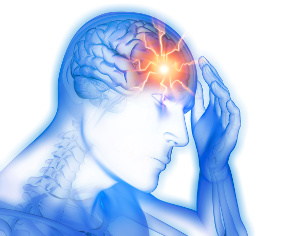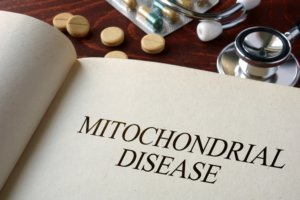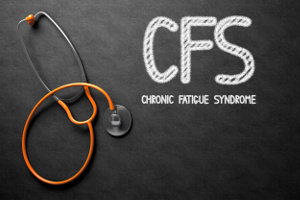afterLoad (456.22KB) (3.02ms)
afterInitialise (1.27MB) (56.65ms)
afterRoute (870.39KB) (24.39ms)
beforeRenderComponent com_tags (20.38KB) (4.7ms)
afterRenderComponent com_tags (1.43MB) (191ms)
afterDispatch (27.02KB) (11.07ms)
beforeRenderRawModule mod_articles_category (READ MORE...) (388.74KB) (18.3ms)
Before Access::preloadComponents (all components) (56.7KB) (4.15ms)
After Access::preloadComponents (all components) (103.05KB) (5.11ms)
Before Access::getAssetRules (id:8 name:com_content) (840B) (30μs)
After Access::getAssetRules (id:8 name:com_content) (7.05KB) (53μs)
afterRenderRawModule mod_articles_category (READ MORE...) (5.08KB) (183ms)
beforeRenderRawModule mod_tags_popular (Search) (4.81KB) (26μs)
afterRenderRawModule mod_tags_popular (Search) (3.05KB) (160ms)
beforeRenderRawModule mod_custom (Remember to download Heart Healthy Seniors) (816B) (37μs)
afterRenderRawModule mod_custom (Remember to download Heart Healthy Seniors) (4.86KB) (3.93ms)
beforeRenderRawModule mod_custom (Get additionel and more detailed knowledge ) (752B) (27μs)
afterRenderRawModule mod_custom (Get additionel and more detailed knowledge ) (1.67KB) (42μs)
beforeRenderRawModule mod_custom (BOOST YOUR IMMUNE DEFENSE) (608B) (12μs)
afterRenderRawModule mod_custom (BOOST YOUR IMMUNE DEFENSE) (928B) (25μs)
beforeRenderRawModule mod_custom (Are you taking supplements) (736B) (10μs)
afterRenderRawModule mod_custom (Are you taking supplements) (1.03KB) (21μs)
beforeRenderRawModule mod_custom (Antiaging) (720B) (9μs)
afterRenderRawModule mod_custom (Antiaging) (1.02KB) (19μs)
beforeRenderRawModule mod_custom (Exercise) (720B) (10μs)
afterRenderRawModule mod_custom (Exercise) (1.02KB) (18μs)
beforeRenderRawModule mod_custom (Check this before you buy a Q10 product) (752B) (8μs)
afterRenderRawModule mod_custom (Check this before you buy a Q10 product) (944B) (19μs)
beforeRenderRawModule mod_custom (Chronic fatigue tied Alan to his bed but Q10 capsules saved him:) (245.53KB) (12.58ms)
afterRenderRawModule mod_custom (Chronic fatigue tied Alan to his bed but Q10 capsules saved him:) (960B) (64μs)
beforeRenderModule mod_custom (Chronic fatigue tied Alan to his bed but Q10 capsules saved him:) (768B) (6μs)
afterRenderModule mod_custom (Chronic fatigue tied Alan to his bed but Q10 capsules saved him:) (1.3KB) (84μs)
beforeRenderRawModule mod_custom (Cholesterol-lowering without side effects:) (368B) (13μs)
afterRenderRawModule mod_custom (Cholesterol-lowering without side effects:) (2.19KB) (25μs)
beforeRenderModule mod_custom (Cholesterol-lowering without side effects:) (752B) (2μs)
afterRenderModule mod_custom (Cholesterol-lowering without side effects:) (1.28KB) (30μs)
beforeRenderModule mod_articles_category (READ MORE...) (21.32KB) (414μs)
afterRenderModule mod_articles_category (READ MORE...) (1.25KB) (42μs)
beforeRenderModule mod_tags_popular (Search) (5.17KB) (13μs)
afterRenderModule mod_tags_popular (Search) (1.27KB) (24μs)
beforeRenderModule mod_custom (Remember to download Heart Healthy Seniors) (1.17KB) (2.15ms)
afterRenderModule mod_custom (Remember to download Heart Healthy Seniors) (1.3KB) (100μs)
beforeRenderModule mod_custom (Get additionel and more detailed knowledge ) (368B) (27μs)
afterRenderModule mod_custom (Get additionel and more detailed knowledge ) (1.3KB) (29μs)
beforeRenderModule mod_custom (BOOST YOUR IMMUNE DEFENSE) (224B) (13μs)
afterRenderModule mod_custom (BOOST YOUR IMMUNE DEFENSE) (1.28KB) (24μs)
beforeRenderModule mod_custom (Are you taking supplements) (352B) (10μs)
afterRenderModule mod_custom (Are you taking supplements) (1.28KB) (21μs)
beforeRenderModule mod_custom (Antiaging) (336B) (10μs)
afterRenderModule mod_custom (Antiaging) (1.27KB) (21μs)
beforeRenderModule mod_custom (Exercise) (336B) (8μs)
afterRenderModule mod_custom (Exercise) (1.25KB) (21μs)
beforeRenderModule mod_custom (Check this before you buy a Q10 product) (352B) (10μs)
afterRenderModule mod_custom (Check this before you buy a Q10 product) (1.28KB) (21μs)
beforeRenderRawModule mod_menu (Main menu-US) (20.94KB) (6.72ms)
afterRenderRawModule mod_menu (Main menu-US) (152.66KB) (10.52ms)
beforeRenderModule mod_menu (Main menu-US) (720B) (7μs)
afterRenderModule mod_menu (Main menu-US) (4.36KB) (90μs)
beforeRenderRawModule mod_languages (Sprogskift) (3.44KB) (30μs)
afterRenderRawModule mod_languages (Sprogskift) (26.84KB) (13.51ms)
beforeRenderModule mod_languages (Sprogskift) (720B) (7μs)
afterRenderModule mod_languages (Sprogskift) (5.31KB) (26μs)
beforeRenderRawModule mod_finder () (6.34KB) (15μs)
afterRenderRawModule mod_finder () (214.16KB) (9.15ms)
beforeRenderModule mod_finder () (704B) (7μs)
afterRenderModule mod_finder () (5.79KB) (45μs)
beforeRenderRawModule mod_custom () (6.62KB) (177μs)
afterRenderRawModule mod_custom () (22.66KB) (10.72ms)
beforeRenderModule mod_custom () (704B) (9μs)
afterRenderModule mod_custom () (1.23KB) (67μs)
beforeRenderRawModule mod_menu (Main menu-US) (5.07KB) (153μs)
afterRenderRawModule mod_menu (Main menu-US) (5.8KB) (7.99ms)
beforeRenderModule mod_menu (Main menu-US) (720B) (7μs)
afterRenderModule mod_menu (Main menu-US) (1.25KB) (69μs)
beforeRenderRawModule mod_languages (Sprogskift Mobil) (912B) (23μs)
afterRenderRawModule mod_languages (Sprogskift Mobil) (3.89KB) (8.83ms)
beforeRenderModule mod_languages (Sprogskift Mobil) (720B) (9μs)
afterRenderModule mod_languages (Sprogskift Mobil) (1.27KB) (51μs)
beforeRenderRawModule mod_finder () (2.3KB) (17μs)
afterRenderRawModule mod_finder () (6.29KB) (8.34ms)
beforeRenderModule mod_finder () (704B) (8μs)
afterRenderModule mod_finder () (1.23KB) (66μs)
beforeRenderRawModule mod_custom () (8.66KB) (3.45ms)
afterRenderRawModule mod_custom () (904B) (280μs)
beforeRenderModule mod_custom () (704B) (4μs)
afterRenderModule mod_custom () (2.43KB) (40μs)
beforeRenderRawModule mod_custom () (688B) (119μs)
afterRenderRawModule mod_custom () (896B) (4.58ms)
beforeRenderModule mod_custom () (704B) (9μs)
afterRenderModule mod_custom () (2.71KB) (42μs)
afterRender (261.71KB) (53.81ms)
| 1 x afterRenderComponent com_tags (1.43MB) (23.18%) | 190.52ms |
| 1 x afterRenderRawModule mod_articles_category (READ MORE...) (5.08KB) (22.26%) | 182.90ms |
| 1 x afterRenderRawModule mod_tags_popular (Search) (3.05KB) (19.46%) | 159.93ms |
| 1 x afterInitialise (1.27MB) (6.89%) | 56.65ms |
| 1 x afterRender (261.71KB) (6.55%) | 53.81ms |
| 1 x afterRoute (870.39KB) (2.97%) | 24.39ms |
| 1 x beforeRenderRawModule mod_articles_category (READ MORE...) (388.74KB) (2.23%) | 18.30ms |
| 1 x afterRenderRawModule mod_languages (Sprogskift) (26.84KB) (1.64%) | 13.51ms |
| 1 x beforeRenderRawModule mod_custom (Chronic fatigue tied Alan to his bed but Q10 capsules saved him:) (245.53KB) (1.53%) | 12.58ms |
| 1 x afterDispatch (27.02KB) (1.35%) | 11.07ms |
| 1 x afterRenderRawModule mod_custom () (22.66KB) (1.3%) | 10.72ms |
| 1 x afterRenderRawModule mod_menu (Main menu-US) (152.66KB) (1.28%) | 10.52ms |
| 1 x afterRenderRawModule mod_finder () (214.16KB) (1.11%) | 9.15ms |
| 1 x afterRenderRawModule mod_languages (Sprogskift Mobil) (3.89KB) (1.07%) | 8.83ms |
| 1 x afterRenderRawModule mod_finder () (6.29KB) (1.01%) | 8.34ms |
| 1 x afterRenderRawModule mod_menu (Main menu-US) (5.8KB) (0.97%) | 7.99ms |
| 1 x beforeRenderRawModule mod_menu (Main menu-US) (20.94KB) (0.82%) | 6.72ms |
| 1 x After Access::preloadComponents (all components) (103.05KB) (0.62%) | 5.11ms |
| 1 x beforeRenderComponent com_tags (20.38KB) (0.57%) | 4.70ms |
| 1 x afterRenderRawModule mod_custom () (896B) (0.56%) | 4.58ms |
| 1 x Before Access::preloadComponents (all components) (56.7KB) (0.5%) | 4.15ms |
| 1 x afterRenderRawModule mod_custom (Remember to download Heart Healthy Seniors) (4.86KB) (0.48%) | 3.93ms |
| 1 x beforeRenderRawModule mod_custom () (8.66KB) (0.42%) | 3.45ms |
| 1 x afterLoad (456.22KB) (0.37%) | 3.02ms |
| 1 x beforeRenderModule mod_custom (Remember to download Heart Healthy Seniors) (1.17KB) (0.26%) | 2.15ms |
| 1 x beforeRenderModule mod_articles_category (READ MORE...) (21.32KB) (0.05%) | 414μs |
| 1 x afterRenderRawModule mod_custom () (904B) (0.03%) | 280μs |
| 1 x beforeRenderRawModule mod_custom () (6.62KB) (0.02%) | 177μs |
| 1 x beforeRenderRawModule mod_menu (Main menu-US) (5.07KB) (0.02%) | 153μs |
| 1 x beforeRenderRawModule mod_custom () (688B) (0.01%) | 119μs |
| 1 x afterRenderModule mod_custom (Remember to download Heart Healthy Seniors) (1.3KB) (0.01%) | 100μs |
| 1 x afterRenderModule mod_menu (Main menu-US) (4.36KB) (0.01%) | 90μs |
| 1 x afterRenderModule mod_custom (Chronic fatigue tied Alan to his bed but Q10 capsules saved him:) (1.3KB) (0.01%) | 84μs |
| 1 x afterRenderModule mod_menu (Main menu-US) (1.25KB) (0.01%) | 69μs |
| 1 x afterRenderModule mod_custom () (1.23KB) (0.01%) | 67μs |
| 1 x afterRenderModule mod_finder () (1.23KB) (0.01%) | 66μs |
| 1 x afterRenderRawModule mod_custom (Chronic fatigue tied Alan to his bed but Q10 capsules saved him:) (960B) (0.01%) | 64μs |
| 1 x After Access::getAssetRules (id:8 name:com_content) (7.05KB) (0.01%) | 53μs |
| 1 x afterRenderModule mod_languages (Sprogskift Mobil) (1.27KB) (0.01%) | 51μs |
| 1 x afterRenderModule mod_finder () (5.79KB) (0.01%) | 45μs |
| 1 x afterRenderRawModule mod_custom (Get additionel and more detailed knowledge ) (1.67KB) (0.01%) | 42μs |
| 1 x afterRenderModule mod_articles_category (READ MORE...) (1.25KB) (0.01%) | 42μs |
| 1 x afterRenderModule mod_custom () (2.71KB) (0.01%) | 42μs |
| 1 x afterRenderModule mod_custom () (2.43KB) (0%) | 40μs |
| 1 x beforeRenderRawModule mod_custom (Remember to download Heart Healthy Seniors) (816B) (0%) | 37μs |
| 1 x Before Access::getAssetRules (id:8 name:com_content) (840B) (0%) | 30μs |
| 1 x afterRenderModule mod_custom (Cholesterol-lowering without side effects:) (1.28KB) (0%) | 30μs |
| 1 x beforeRenderRawModule mod_languages (Sprogskift) (3.44KB) (0%) | 30μs |
| 1 x afterRenderModule mod_custom (Get additionel and more detailed knowledge ) (1.3KB) (0%) | 29μs |
| 1 x beforeRenderRawModule mod_custom (Get additionel and more detailed knowledge ) (752B) (0%) | 27μs |
| 1 x beforeRenderModule mod_custom (Get additionel and more detailed knowledge ) (368B) (0%) | 27μs |
| 1 x beforeRenderRawModule mod_tags_popular (Search) (4.81KB) (0%) | 26μs |
| 1 x afterRenderModule mod_languages (Sprogskift) (5.31KB) (0%) | 26μs |
| 1 x afterRenderRawModule mod_custom (BOOST YOUR IMMUNE DEFENSE) (928B) (0%) | 25μs |
| 1 x afterRenderRawModule mod_custom (Cholesterol-lowering without side effects:) (2.19KB) (0%) | 25μs |
| 1 x afterRenderModule mod_custom (BOOST YOUR IMMUNE DEFENSE) (1.28KB) (0%) | 24μs |
| 1 x afterRenderModule mod_tags_popular (Search) (1.27KB) (0%) | 24μs |
| 1 x beforeRenderRawModule mod_languages (Sprogskift Mobil) (912B) (0%) | 23μs |
| 3 x beforeRenderModule mod_custom () (704B) (0%) | 22μs |
| 1 x afterRenderRawModule mod_custom (Are you taking supplements) (1.03KB) (0%) | 21μs |
| 1 x afterRenderModule mod_custom (Are you taking supplements) (1.28KB) (0%) | 21μs |
| 1 x afterRenderModule mod_custom (Antiaging) (1.27KB) (0%) | 21μs |
| 1 x afterRenderModule mod_custom (Exercise) (1.25KB) (0%) | 21μs |
| 1 x afterRenderModule mod_custom (Check this before you buy a Q10 product) (1.28KB) (0%) | 21μs |
| 1 x afterRenderRawModule mod_custom (Check this before you buy a Q10 product) (944B) (0%) | 19μs |
| 1 x afterRenderRawModule mod_custom (Antiaging) (1.02KB) (0%) | 19μs |
| 1 x afterRenderRawModule mod_custom (Exercise) (1.02KB) (0%) | 18μs |
| 1 x beforeRenderRawModule mod_finder () (2.3KB) (0%) | 17μs |
| 2 x beforeRenderModule mod_finder () (704B) (0%) | 15μs |
| 1 x beforeRenderRawModule mod_finder () (6.34KB) (0%) | 15μs |
| 2 x beforeRenderModule mod_menu (Main menu-US) (720B) (0%) | 14μs |
| 1 x beforeRenderModule mod_tags_popular (Search) (5.17KB) (0%) | 13μs |
| 1 x beforeRenderModule mod_custom (BOOST YOUR IMMUNE DEFENSE) (224B) (0%) | 13μs |
| 1 x beforeRenderRawModule mod_custom (Cholesterol-lowering without side effects:) (368B) (0%) | 13μs |
| 1 x beforeRenderRawModule mod_custom (BOOST YOUR IMMUNE DEFENSE) (608B) (0%) | 12μs |
| 1 x beforeRenderRawModule mod_custom (Are you taking supplements) (736B) (0%) | 10μs |
| 1 x beforeRenderRawModule mod_custom (Exercise) (720B) (0%) | 10μs |
| 1 x beforeRenderModule mod_custom (Are you taking supplements) (352B) (0%) | 10μs |
| 1 x beforeRenderModule mod_custom (Antiaging) (336B) (0%) | 10μs |
| 1 x beforeRenderModule mod_custom (Check this before you buy a Q10 product) (352B) (0%) | 10μs |
| 1 x beforeRenderRawModule mod_custom (Antiaging) (720B) (0%) | 9μs |
| 1 x beforeRenderModule mod_languages (Sprogskift Mobil) (720B) (0%) | 9μs |
| 1 x beforeRenderRawModule mod_custom (Check this before you buy a Q10 product) (752B) (0%) | 8μs |
| 1 x beforeRenderModule mod_custom (Exercise) (336B) (0%) | 8μs |
| 1 x beforeRenderModule mod_languages (Sprogskift) (720B) (0%) | 7μs |
| 1 x beforeRenderModule mod_custom (Chronic fatigue tied Alan to his bed but Q10 capsules saved him:) (768B) (0%) | 6μs |
| 1 x beforeRenderModule mod_custom (Cholesterol-lowering without side effects:) (752B) (0%) | 2μs |
 People whose dietary consumption of vitamin B2 is more than twice the amount that is officially recommended have significantly fewer migraine attacks, according to a new study published in Neurology. Earlier studies also show that high-dosed vitamin B2 supplementation has a positive effect. It is important to pay attention to the factors that impair the body’s utilization of vitamin B2.
People whose dietary consumption of vitamin B2 is more than twice the amount that is officially recommended have significantly fewer migraine attacks, according to a new study published in Neurology. Earlier studies also show that high-dosed vitamin B2 supplementation has a positive effect. It is important to pay attention to the factors that impair the body’s utilization of vitamin B2.







 Most people have experienced a normal headache, while migraines are far more complex. Although the pain can be caused by a number of factors, essential nutrients such as B vitamins, vitamin D, magnesium, fish oil, and coenzyme Q10 may play a vital role according to a review article that is published in Current Pain and Headache Reports. The authors describe how certain nutrients affect underlying mechanisms that may prevent or mitigate different types of headaches.
Most people have experienced a normal headache, while migraines are far more complex. Although the pain can be caused by a number of factors, essential nutrients such as B vitamins, vitamin D, magnesium, fish oil, and coenzyme Q10 may play a vital role according to a review article that is published in Current Pain and Headache Reports. The authors describe how certain nutrients affect underlying mechanisms that may prevent or mitigate different types of headaches. Magnesium is important for numerous physiological functions. In a new review article published in Nutrients, researchers have looked at the relation between the body’s magnesium levels and a variety of different ageing markers. Also, they hypothesize that optimal intake of magnesium throughout life is an easy and inexpensive way to obtain healthy ageing.
Magnesium is important for numerous physiological functions. In a new review article published in Nutrients, researchers have looked at the relation between the body’s magnesium levels and a variety of different ageing markers. Also, they hypothesize that optimal intake of magnesium throughout life is an easy and inexpensive way to obtain healthy ageing. High-dosed supplementation with coenzyme Q10 is able to reduce the frequency, severity, and duration of migraine attacks, which is because the compound reduces levels of a brain peptide that causes pain and inflammation. This was shown in a groundbreaking study that is published in Nutritional Neuroscience. Pharmaceutical companies are now working around the clock to develop a patentable drug that is able to block this peptide, but migraine sufferers may just as well use Q10. It is already available without a prescription. Always choose a high-quality product with documented bioavailability to ensure that the Q10 molecules reach the energy-producing mitochondria of the cells. The reason why migraine sufferers may have an increased need for coenzyme Q10 is that they have mitochondrial defects.
High-dosed supplementation with coenzyme Q10 is able to reduce the frequency, severity, and duration of migraine attacks, which is because the compound reduces levels of a brain peptide that causes pain and inflammation. This was shown in a groundbreaking study that is published in Nutritional Neuroscience. Pharmaceutical companies are now working around the clock to develop a patentable drug that is able to block this peptide, but migraine sufferers may just as well use Q10. It is already available without a prescription. Always choose a high-quality product with documented bioavailability to ensure that the Q10 molecules reach the energy-producing mitochondria of the cells. The reason why migraine sufferers may have an increased need for coenzyme Q10 is that they have mitochondrial defects. The mitochondria are the powerhouses of our cells that churn out energy in a process that involves oxygen, Q10, selenium, and other nutrients. Around 100 years ago, the German Nobel Prize winner, Professor Otto Warburg, demonstrated that even if cancer can be caused by a number of secondary factors, there is only one primary cause: alterations in the mitochondrial oxygen turnover. In his recent book, Tripping over the Truth, molecular biologist Travis Christoffersen describes how contemporary scientists confirm Warburg’s theories and says that we need to look at prevention and cancer treatment from an entirely different angle. Other studies show that Parkinson’s disease, migraine, senility, chronic fatigue, fibromyalgia, epilepsy, and other neurological disorders may be rooted in defects of the mitochondria that have many other functions besides delivering energy. It is therefore vital to take care of the mitochondria throughout life. You can read more about the ketogenic diet that optimizes mitochondrial energy turnover in different mitochondrial diseases.
The mitochondria are the powerhouses of our cells that churn out energy in a process that involves oxygen, Q10, selenium, and other nutrients. Around 100 years ago, the German Nobel Prize winner, Professor Otto Warburg, demonstrated that even if cancer can be caused by a number of secondary factors, there is only one primary cause: alterations in the mitochondrial oxygen turnover. In his recent book, Tripping over the Truth, molecular biologist Travis Christoffersen describes how contemporary scientists confirm Warburg’s theories and says that we need to look at prevention and cancer treatment from an entirely different angle. Other studies show that Parkinson’s disease, migraine, senility, chronic fatigue, fibromyalgia, epilepsy, and other neurological disorders may be rooted in defects of the mitochondria that have many other functions besides delivering energy. It is therefore vital to take care of the mitochondria throughout life. You can read more about the ketogenic diet that optimizes mitochondrial energy turnover in different mitochondrial diseases.
 Q10 is a key element in the cellular energy turnover and also serves as a protective antioxidant. The human body is able to make most of its own Q10 but as we grow older, our endogenous Q10 synthesis decreases, and this is also the case with certain diseases and as a result of using specific types of medicine. A large meta-analysis has shown that Q10 supplementation is able to reduce chronic fatigue in healthy individuals as well as in people with diseases. Apparently, taking larger doses for longer periods of time works best for energy levels. It is important to choose a Q10 supplement that has the right quality and comes with documentation to ensure that the Q10 molecules are absorbed properly in the blood and reach the energy-producing powerhouses of the cells.
Q10 is a key element in the cellular energy turnover and also serves as a protective antioxidant. The human body is able to make most of its own Q10 but as we grow older, our endogenous Q10 synthesis decreases, and this is also the case with certain diseases and as a result of using specific types of medicine. A large meta-analysis has shown that Q10 supplementation is able to reduce chronic fatigue in healthy individuals as well as in people with diseases. Apparently, taking larger doses for longer periods of time works best for energy levels. It is important to choose a Q10 supplement that has the right quality and comes with documentation to ensure that the Q10 molecules are absorbed properly in the blood and reach the energy-producing powerhouses of the cells. Neurological disorders such as Alzheimer’s disease, dementia, depression, Parkinson’s disease, stroke, migraine, and fibromyalgia are rather common. These conditions are a result of imbalances in the nervous system, and they are often insidious. In a new review article that is published in Frontiers in Neuroscience, researchers have studied Q10’s role in the different neurological disorders. The reason for this is that Q10 is important for cellular energy turnover and serves as an antioxidant that protects the circulatory system and the nerve cells against oxidative damage. As we grow older, our endogenous Q10 synthesis decreases, and certain diseases and medical drugs also impair the body’s Q10 synthesis.
Neurological disorders such as Alzheimer’s disease, dementia, depression, Parkinson’s disease, stroke, migraine, and fibromyalgia are rather common. These conditions are a result of imbalances in the nervous system, and they are often insidious. In a new review article that is published in Frontiers in Neuroscience, researchers have studied Q10’s role in the different neurological disorders. The reason for this is that Q10 is important for cellular energy turnover and serves as an antioxidant that protects the circulatory system and the nerve cells against oxidative damage. As we grow older, our endogenous Q10 synthesis decreases, and certain diseases and medical drugs also impair the body’s Q10 synthesis. Parkinson’s disease, also known as shaking palsy, is one of the most common chronic disorders among older people. There is no effective cure at this point, and the only way to address the disease is to suppress the symptoms but that does not treat the underlying cause. Even though most cases of Parkinson’s disease are sporadic, it turns out that the hereditary variants of the disease are linked to mutations in a particular gene. A team of scientists from University of the Basque Country in Spain has discovered that vitamin B12 blocks the enzyme that is involved in these mutations. An earlier study has also shown that in newly diagnosed Parkinson’s patients who have low levels of vitamin B12 the disease develops faster than in patients with higher levels of the nutrient.
Parkinson’s disease, also known as shaking palsy, is one of the most common chronic disorders among older people. There is no effective cure at this point, and the only way to address the disease is to suppress the symptoms but that does not treat the underlying cause. Even though most cases of Parkinson’s disease are sporadic, it turns out that the hereditary variants of the disease are linked to mutations in a particular gene. A team of scientists from University of the Basque Country in Spain has discovered that vitamin B12 blocks the enzyme that is involved in these mutations. An earlier study has also shown that in newly diagnosed Parkinson’s patients who have low levels of vitamin B12 the disease develops faster than in patients with higher levels of the nutrient. Vitamin B3 has a therapeutic effect in the treatment of progressive muscle diseases, including mitochondrial myopathy that is caused by a defective cellular energy metabolism and which has no cure, according to a study from Helsinki University.
Vitamin B3 has a therapeutic effect in the treatment of progressive muscle diseases, including mitochondrial myopathy that is caused by a defective cellular energy metabolism and which has no cure, according to a study from Helsinki University. The mitochondria are the energy-producing powerplants in cells that have numerous essential functions. They need plenty of vitamin D, which we get from the sun, but they also require melatonin, a substance that we synthesize in response to nightfall. Around the clock, these two compounds complement each other in protecting the mitochondria and the cells. But ageing and our modern lifestyle may reduce the body’s ability to produce the two substances and this may lead to insomnia and a host of different diseases such as infections, type 2 diabetes, atherosclerosis, dementia, and cancer. Of course, older people are more vulnerable. However, with supplements it is possible to compensate for the reduced endogenous synthesis of melatonin and vitamin D, according to an article that is published in The Journal of Steroid Biochemistry and Molecular Biology.
The mitochondria are the energy-producing powerplants in cells that have numerous essential functions. They need plenty of vitamin D, which we get from the sun, but they also require melatonin, a substance that we synthesize in response to nightfall. Around the clock, these two compounds complement each other in protecting the mitochondria and the cells. But ageing and our modern lifestyle may reduce the body’s ability to produce the two substances and this may lead to insomnia and a host of different diseases such as infections, type 2 diabetes, atherosclerosis, dementia, and cancer. Of course, older people are more vulnerable. However, with supplements it is possible to compensate for the reduced endogenous synthesis of melatonin and vitamin D, according to an article that is published in The Journal of Steroid Biochemistry and Molecular Biology. "After about one week of taking the Q10 supplement I could feel a huge difference," says 23-year old Alan Piccini, who has been suffering from extreme fatigue and muscle aches ever since he was a child.
"After about one week of taking the Q10 supplement I could feel a huge difference," says 23-year old Alan Piccini, who has been suffering from extreme fatigue and muscle aches ever since he was a child. “Taking capsules with co-enzyme Q10 has freed me of the severe side effects of my cholesterol lowering medicine,” Mrs Franken explains.
“Taking capsules with co-enzyme Q10 has freed me of the severe side effects of my cholesterol lowering medicine,” Mrs Franken explains.